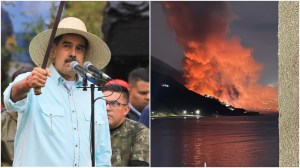Missionary energy
I hope you do not mind my writing you an open letter, an idea that struck me during your speech and the subsequent...

I hope you do not mind my writing you an open letter, an idea that struck me during your speech and the subsequent bedlam during the parliamentary debate on the civil nuclear agreement. Your speech gave hope. Your opening statement, that you spoke not as a member of a political party but as an Indian; your implicit message that 8216;energy security8217; was not about international agreements, individual egos and fine words but about the fundamentals of human well-being; your emphasis on the importance of reliable, clean and affordable energy for a life of dignity and quality 8212; were hopeful signs that the debate would rise above partisan politics and be set against the backdrop of national interest.
But that was not to be. The unseemly sight of raving parliamentarians and wads of cash put paid to any such hope. It became clear if such clarity were needed that Indian politics had become too conflictual for a subject like energy security to be discussed with dispassion and reason in the halls of parliament. It also became clear that there were many who shared your sentiment but who, either because of loyalty to the party whip or lack of opportunity, did not or could not make public their views. Omar Abdullah was their eloquent spokesman.
The trigger for this 8216;letter8217; was this clarity. It sparked the thought that one of perhaps several other initiatives required to accelerate the drive towards energy security was to find an 8216;energy champion8217; 8212; an individual of influence and public spirit; a person whose standing cut across political groups; a leader whose vision stretched beyond the electoral cycle 8212; and for that champion to create an 8216;extra parliamentary forum8217; through which to mobilise public opinion and forge a parliamentary consensus on the way ahead. I decided to write to you to be that champion; to pull together a group of like minded individuals of renown, integrity and expertise from across the political spectrum, business, academics, bureaucracy and NGOs 8212; the key stakeholders of our society; to make in effect, energy security your single point 8212; 8216;a political8217; priority. I realise, of course, that such a group cannot substitute for the executive or circumvent the legislature. But it can hold up a mirror to them and endeavour to ensure that energy security is not ensnared by short-termism, vested interests and the electoral cycle. It can be the energy ombudsman of the country.
There are three reasons why I believe you should be the 8216;champion8217;. First, your speech made clear that you regarded 8216;energy security8217; as a 8216;people-centred8217; issue and not one for political gamesmanship. Second, you have decades ahead of you in public life. You can push for decisions today in the confident expectation that you will be around in public life well after most of your critics have left the scene. And that in time and possibly from the vantage point of executive authority you will be able to look back and declaim with satisfaction that your initiatives did indeed transform the lives of Kalawati and her children. And third you are the legatee of a political lineage that no one can ignore. Whether in power or not, your voice will be heard.
I believe that the country cannot afford a repeat of the controversies that have surrounded the 123 agreement. We all know that it will take decades to reconfigure our vast and complex energy system. Plans that are approved today will take tangible shape years hence. The nuclear deal will make a meaningful contribution to our energy basket only sometime around 2020. We also know that energy security is our route to carbon abatement. Most of the measures related to energy security like energy efficiency, demand conservation, renewables, biofuels and nuclear are a positive for climate change. We cannot of course accept limits on carbon emissions but at the same time we cannot allow our economy to get locked onto a high carbon pathway. For we know that global warming will impact our economy disproportionately hard. It is because of these twin factors 8212; the lengthy timescales involved in building a new energy supply infrastructure and the urgency to mitigate carbon emissions, that fractious politics must not be allowed to stymie further progress on energy security.
Intelligent commentary on energy security has hitherto been all about 8220;what8221; needs to be done. There has however been scant discussion on 8220;how8221; these corrective measures can to be implemented. Indeed conversations on the 8220;how8221; inevitably falter because of reference to systemic roadblocks, the resistance of vested interests and the inbuilt inertia of our fragmented decision-making structure. We have, for instance, multiple government ministries dealing with energy. Each has a minister; a civil-service head, a distinctive constituency and a separate agenda. The result is incrementalism and separatism. The policy initiatives are small and inadequate. And more often than not, they address only one part of the energy problem without taking into account the impact on the other part. The government is of course aware of these problems. The Planning Commission and the Prime Minister8217;s energy coordination group have endeavoured to find 8216;energy first8217; integrated solutions. But as implementation is still through the separate ministries, this institutional shortcoming is yet to be overcome.
By suggesting that you be the champion of energy security and that you leverage the multiple skills of a body of experts I am hopeful that you will dispel this reluctance to focus on the 8220;how8221;. I am also hopeful that by asking the right questions and by coming up with bold and pragmatic answers, you will help bridge the gap between the rhetoric of intent and the reality of action.
Your father triggered the telecom revolution. He envisioned the future when others were mired in the status quo. He pulled together the relevant experts and gave them the space to think and experiment. Had he been alive today he could have taken justifiable pride at the radical transformation that his early initiatives had wrought. The question that motivated me to write this letter was 8212; is it not possible that you might catalyse an equally radical and durable transformation of the energy system?
The writer is Chairman of the Shell Group of Companies in India. The views expressed are personal
- 01
- 02
- 03
- 04
- 05































